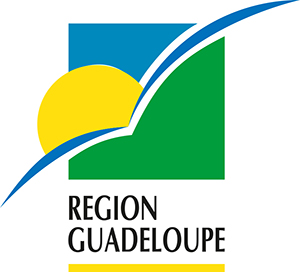The PPE’s Objectives for Solar Photovoltaics
The regional government’s solar photovoltaics policies have several objectives:
- Ensure non-disruptive, coordinated, and managed development of solar photovoltaics that achieves a balance between sub-sectors of renewable energy and across Guadeloupe
- Manage the development of the sector by selecting the solar photovoltaic projects that are the most beneficial for Guadeloupe
- Create a transparent legal and regulatory framework for the sector
- Support innovation, which is one of the pillars of regional renewable energy policy
The PPE sets quantified objectives for the sector for 2023, with consideration for the degree of maturity and progress of planned and ongoing projects.
- Solar photovoltaic power (without storage): an additional 15 MW by 2023
- Which represents the development of solar photovoltaics in self-consumption without storage, intended primarily to cover the daily needs of the tertiary sector
- Solar photovoltaic power (with storage): an additional 52 MW by 2023
- Solar photovoltaic installations with utility-scale storage (more than 100 kWp): an additional 37 MW produced mainly through RFPs put out by the Regional Energy Commission for non-interconnected zones
- Self-consumption solar photovoltaic installation with storage: an additional 15 MW directed mainly at households, this technology requires the emergence of a suitable financial model
Solar Photovoltaic Installations with Large-Scale Storage (>100 kWp)
The Regional Energy Commission is an independent administrative agency created in 2000 to regulate energy markets. It is overseen by the French ministry holding the energy portfolio. As such, it periodically puts out RFPs for the development and operation of solar power plant generating more than 100 kWp in non-interconnected zones (i.e. Corsica and the French overseas departments).
After technical, financial, and environmental assessment, the Regional Energy Commission selects the best projects for each non-interconnected zone and sets a fixed guaranteed metering rate. Successful bids are selected by the French ministry holding the energy portfolio.
The results of the most recent RFPs can be found in the Key Figures tab (in French only).
Integrating Variable Renewable Energy to the Grid
In non-interconnected zones, the share of variable renewable energy (VRE) relative to total energy generated is capped at 30%. Given that VRE in Guadeloupe has already reached that figure, future growth in this sector will depend on:
- Development of decentralized storage solutions, for example utility-scale solar photovoltaic batteries, pooled storage equipment, centralized storage facilities such as pumped storage plants
- Improvements to grid management, with better predictive capabilities or the development of smart grids
Promotion of New Construction With Integrated Solar-Power Generation
The integration of solar-power generation in new construction is one of the major goals of the regional government’s policy to promote energy-autonomous or even energy-producing buildings.
As such, policy proposals promote self-consumption, specifically by:
- Defining a financial model for rooftop solar photovoltaic systems including mounting and storage that will maximize self-consumption
- Implementing production management and storage systems for solar photovoltaics, paired with improved management of supply and demand that meets consumer expectations (smart grids)
Electric Vehicles
The PPE makes energy transition in the transportation sector one of the top-most priorities. Currently, engine fuel accounts for 70% of final energy use in Guadeloupe, outranking all other types.
Today, energy use from electric vehicles are negligible. Nevertheless, in response to regulatory obligations for the deployment of so-called low-emissions vehicles, the use of electric vehicles will likely expand, and this resulting demand can be met with renewable power generation such as solar photovoltaics.
As such, ADEME, the French Environment and Energy Management Agency, and the regional government put out an RFP in 2015 (titled Sustainable Electric Mobility) to encourage development in this area. Morever, all Energy-Plus Territories for Green Growth (Territoires à Energie Positive pour la Croissance Verte, TEPCV) in Guadeloupe have included in their charters deployment of solar-powered charging stations to meet the needs of electric vehicles.
Development of the Power Grid
The limitations to the grid in its current configuration represents a major challenge for connecting renewable energy projects. These issues are addressed under the regional plan for connecting renewable energy, which defines the new or updated installations required to fully realize the renewable energy potential of Guadeloupe.







